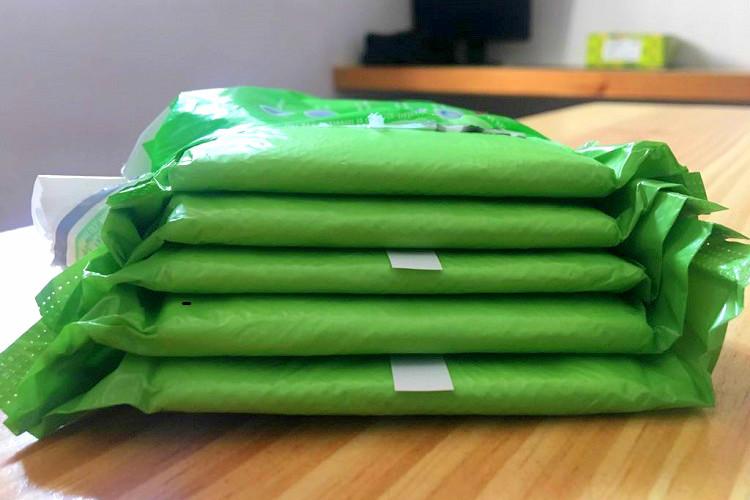
A fifty-year-old woman who began her period at age 13 has had nothing less than 400 menstrual experiences. This means she has bought more than four hundred packs of sanitary pads in her life as this is the most common hygienic way to take care of this monthly call of nature. In addition to the body discomfort, hormonal changes and pain that accompanies the monthly period, a lot of girls and women have to face the financial cost of sanitary pads.
An average Nigerian schoolgirl has a menstrual period that spans between 3-7 days so she is expected to use a pack of sanitary pad or two per month. Sadly, the cost of this necessary item is rising at an alarming rate.
A pack of sanitary pads containing 8 pieces, used to cost between ₦150 to ₦250 per pack. However, that same pack now costs between ₦300 and ₦500 which is over 100% increase. With this, the fifty-year-old woman would have spent an average of ₦140,000 on sanitary pads over 400 periods. This is assuming each pack she uses per month costs ₦350.
In a country where 40 per cent of the total population (almost 83 million people) lives below the poverty line of ₦137,430 per year, a sanitary is a luxury. This shows that a lot of young Nigerian girls cannot afford a good product to maintain menstrual hygiene. Therefore, many of them resolve to other methods such as rags, foams and other unhygienic materials that can increase the possibilities of getting an infection.
Menstruation is a reality that every girl and woman lives with even when no one talks about it. The reality of not being able to afford a good sanitary product however bites harder on those with lower socioeconomic status.
Menstrual Poverty is a situation when a woman cannot afford the things necessary to take care of herself while menstruating. These necessities include; sanitary pads (both reusable and disposable) menstrual cups, and tampons. Essentials to ease the cramps/pains that come with menstruations are also counted as must-haves.
We need to invest in our women, both academically and health-wise, attention should be placed on properly educating them so, menstrual education should cover personal hygiene during periods, the many hygienic-sanitary options to choose from as well as the correct usage of sanitary products. Women from low socioeconomic status can be given reusable products and taught hygienic ways of using and preserving them. Since these women might not be able to always afford a sanitary product, getting reusable ones would help them cut cost while still maintaining good hygiene.
Menstruation is a call of nature peculiar to only women and every woman wants to experience it with ease and no fear. However, if the cost of getting a pack of sanitary pad is weighed against needs such as food, then the sanitary can wait.

